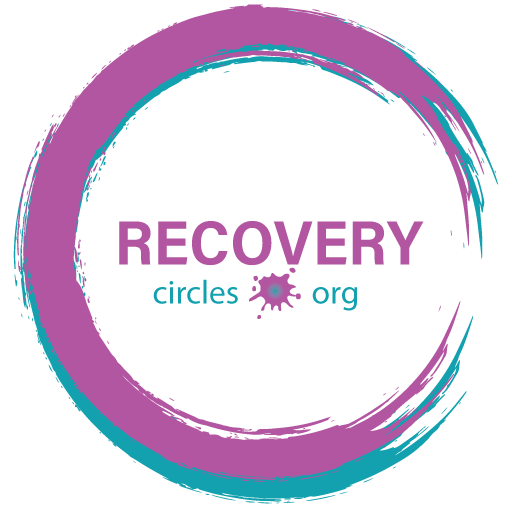Drug Addiction Treatments
Looking for help with drug addiction treatment? Reach out to us today or keep reading to learn more about substance addiction treatments and how Sober House Philadelphia can support your recovery journey.
You can also call us at (267) 412-3258
Featured In





“
I finally feel like I have a future. These people believed in me when I couldn’t.
– John L.
“
What I found here wasn’t just recovery housing in Philadelphia, it was a group of people who truly cared if I succeeded. They held me accountable and helped me rebuild.
– Tony F.
“
As a single mom, I needed a place I could trust. This affordable sober home in Philadelphia gave me that and more. I’m forever grateful.
– Jasmine T.
See more of our success stories
Drug addiction is a complex, chronic condition that affects both the mind and behavior, making it difficult for individuals to control the urge to use illicit substances or misuse prescription medications. According to a 2017 survey, nearly 19.7 million American adults struggled with substance abuse—and of those, around 38% reported using illicit drugs. Despite these staggering numbers, many people still don’t seek the help they need to begin the road to recovery.
Even more concerning is the growing number of individuals facing both substance abuse and mental health challenges—a combination known as co-occurring disorders. At Sober House Philadelphia, we understand how deeply intertwined these struggles can be. That’s why we’re committed to offering compassionate, structured support through our recovery programs, giving individuals a real chance to reclaim their lives and build a healthier future.
You can also call us at (267) 412-3258
What Are Drug Addiction Treatments?
Today, there are many effective treatment options available for those struggling with substance use and the triggers that fuel addiction. Without timely and proper care, these issues can worsen and lead to more serious mental health challenges.
At the heart of any addiction treatment program is a simple but powerful goal: to help individuals break free from their dependence on substances and begin a lasting journey toward recovery. The hope is to guide each person through the rehab process, address underlying mental health conditions, and support them as they reintegrate into society as healthy, productive individuals.
Comprehensive rehab programs often take a blended approach, combining evidence-based therapies with aftercare planning and ongoing support. These elements are key to managing withdrawal symptoms, preventing relapse, and building a strong foundation for long-term sobriety and emotional wellness.
These treatment programs that are commonly offered are:
- Behavioral counseling;
- Medication;
- Medical Application;
- Dual diagnosis treatment; and
- after-care management.
Understanding how substance use affects the brain is an important part of the recovery process. Prolonged use can significantly alter brain function, often leading to or worsening existing mental health conditions. That’s why it’s crucial for individuals in recovery to learn how to recognize, manage, and cope with the triggers that can lead to relapse—especially after treatment ends.
This phase of recovery can be incredibly challenging, and having a strong support system makes a meaningful difference. Family involvement plays a vital role, offering emotional support, encouragement, and accountability as their loved one adjusts to life after treatment and works to maintain sobriety.
Does Sober Offer Drug Addiction Treatment And Therapies?
Although Sober House Philadelphia is not a clinical treatment center and doesn’t run its own inpatient programs, we work hand-in-hand with trusted partners—such as The Heights Treatment—so our residents have seamless access to comprehensive, evidence-based care whenever it’s needed.
Our role at Sober House Philadelphia is to provide steady encouragement and structure during—and after—formal treatment. We focus on strengthening the foundations of recovery while nurturing a genuine sense of community, because feeling connected is a powerful antidote to relapse and isolation.
Residents can take part in a wide range of activities that promote self-care, self-affirmation, spirituality, and practical life skills. This integrated approach creates a safe, sober living environment where personal growth happens every day.
We also help residents rebuild and deepen relationships with family and loved ones. By working together on communication and healthy boundaries, we set the stage for lasting sobriety and a smoother transition back into daily life as confident, thriving individuals.

Sober Livings

Outpatient Treatments

Individualized Intensive Program

Sober Companions
Is Drug Addiction A Disease?
Many leading mental health organizations and government agencies—such as the National Institute on Drug Abuse (NIDA) and the Substance Abuse and Mental Health Services Administration (SAMHSA)—recognize substance addiction as a disease. It is defined as a chronic, relapsing condition marked by a compulsive craving for drugs, despite harmful consequences.
Like other serious illnesses, addiction disrupts normal organ function—in this case, the brain. It alters how the brain processes reward, motivation, and decision-making, increasing the risk of long-term health complications and even premature death. But just like conditions such as cardiovascular disease, addiction is treatable, and early intervention can help prevent further damage.
Substance addiction is also similar to other chronic conditions like hypertension or type 2 diabetes, which require ongoing care and management. These illnesses may not have a permanent “cure,” but they can be successfully controlled with the right support and treatment.
That said, the classification of addiction as a disease is not universally accepted. Some argue it differs from traditional diseases because it is not contagious, autoimmune, hereditary, or degenerative. Additionally, critics point out that addiction is often self-acquired through initial personal choices.
Still, regardless of how it’s labeled, what remains clear is this: anyone struggling with substance use deserves compassion, support, and access to professional help. Recovery is possible, and seeking treatment is a vital first step toward healing and reclaiming one’s life.
Cities We Serve
What Are The Signs Of Drug Addiction?
Substance use and dependence are among the many mental health challenges that deeply impact individuals—and often tear families apart in the process. The signs of addiction can be both physical and behavioral, and are usually noticeable to those closest to the person affected. These may include sudden changes in personality, slurred speech, bloodshot eyes, a shift in social circles or activities, neglect of personal hygiene, and unexplained financial troubles, among others.
Recognizing these warning signs early can be a critical first step toward getting someone the help they need. With the right support and treatment, healing and recovery are always possible.
What Are Treatments For Drug Addiction?
Substance addiction treatment is not one-size-fits-all. Each person’s path to recovery depends on the severity of their condition, their health history, and personal needs.
The first and often most critical step is detoxification—a medically supervised process that clears the body of harmful substances. Detox helps manage the physical effects of withdrawal, which can sometimes be severe or even life-threatening. However, while detox is necessary, it’s not a complete solution on its own.
Detoxification alone cannot treat a recovering patient. Therefore, supplemental therapeutic procedures must be employed as well. Additionally, a formal assessment of the case results in ascertaining the best therapy form for the patient.
For long-term recovery, detox must be followed by comprehensive therapeutic support. After an initial assessment, professionals determine the most effective treatment plan, which typically includes a mix of counseling and behavioral therapies. These sessions may take place one-on-one or in group settings, depending on what’s most appropriate and comfortable for the individual.
This combination of medical care and emotional support lays the foundation for real, lasting recovery—helping individuals not only stay sober, but rebuild a life of purpose and stability.
Some of these therapies include:
Cognitive Behavioral Therapy (CBT) helps individuals recognize and change negative thought patterns linked to substance use, empowering them to develop healthier coping strategies and reshape their relationship with addiction for long-term recovery.
Multidimensional Family Therapy (MDFT) is designed to strengthen family relationships and communication, specifically to support teens or adolescents struggling with substance use, promoting healing and long-term recovery through active family involvement.
Our partner facility, The Heights Treatment, provides outpatient drug rehab and medication management programs, offering targeted support to help individuals address substance use and related mental health challenges more effectively.
What Makes Drug Addiction Treatment Effective?
A drug addiction treatment program is only truly effective when the individual works closely with their mental health professional or counselor to uncover the root causes of their addiction. Building trust in the treatment process, being open about personal concerns, and actively participating every step of the way are all key to lasting recovery.
At Sober House Philadelphia, we understand that maintaining sobriety can be challenging, especially after formal treatment ends. That’s why we emphasize the importance of relapse prevention and community support. Our sober living environment offers ongoing encouragement from peers, family, and friends—ensuring no one has to walk the journey alone.
We also provide access to sober companions who support individuals in navigating daily life post-treatment, helping them avoid triggers and stay committed to their new, healthy lifestyle.
Can Sober’s Drug Addiction Treatment And Therapies Help You?
Sober House Philadelphia offers a range of recovery-focused programs designed to help individuals grow and improve their overall quality of life. We work in close collaboration with our trusted partner, The Heights Treatment, which provides specialized, substance-specific programs. This partnership ensures that each individual receives a personalized treatment plan tailored to their unique needs, supporting long-term healing and stability.
These substance rehab programs are provided exclusively by The Heights Treatment, specializing in the following:
Opioid addiction requires a comprehensive approach that addresses core issues and functional areas essential to recovery. At Sober House Philadelphia, we focus on fostering personal growth while emphasizing life skills, community connection, self-care, and spirituality to support lasting healing.
Xanax Addiction – In partnership with The Heights Treatment, Sober House Philadelphia supports a holistic and developmental approach to recovery. Patients work closely with certified addiction therapists trained in betrayal trauma under Dr. Patrick Carnes and the International Institute of Trauma & Addiction Professionals (IITAP), ensuring a deeply informed and compassionate path to healing.
Cocaine Addiction – At Sober House Philadelphia, clients work with licensed therapists or counselors to confront underlying trauma in a safe, supportive setting. A strategic, multi-layered approach is used to promote healing and support long-term sobriety.
For individuals with milder symptoms, outpatient rehab can be an effective option. This often includes a Partial Hospitalization Program (PHP), where patients receive structured treatment during the day but return home or to sober housing, like Sober House Philadelphia, afterward.
An Intensive Outpatient Program (IOP) is ideal for those who have established a solid foundation in sobriety and are ready to begin reintegrating into their daily routines while still receiving ongoing therapeutic support.
Are There Drug Addiction Treatments And Therapies Near Me?
Thankfully, there are many addiction recovery options across the philadelphia that help individuals break free from addiction and reclaim their lives from emotional and mental distress.
While Sober House Philadelphia is not a clinical treatment center, we provide vital supplemental recovery services that support individuals during and after formal treatment. In partnership with The Heights Treatment, we help connect residents to trusted outpatient and inpatient rehab programs tailored to their unique needs.
Our dedicated team—alongside licensed therapists and certified specialists—works closely with each resident to guide them toward the most effective treatment path.
At Sober House Philadelphia, care and compassion are at the heart of everything we do. You’ll find yourself surrounded by a supportive, judgment-free community that’s committed to helping you take confident steps toward lasting recovery.
Call our recovery specialists at Sober House Philadelphia today at (267) 412-3258 or fill out our contact form to learn how joining our Philadelphia sober living community can help you reclaim your life. Whether you’re seeking clean and sober housing, structured transitional support, or simply someone to talk to — we’re here for you.
